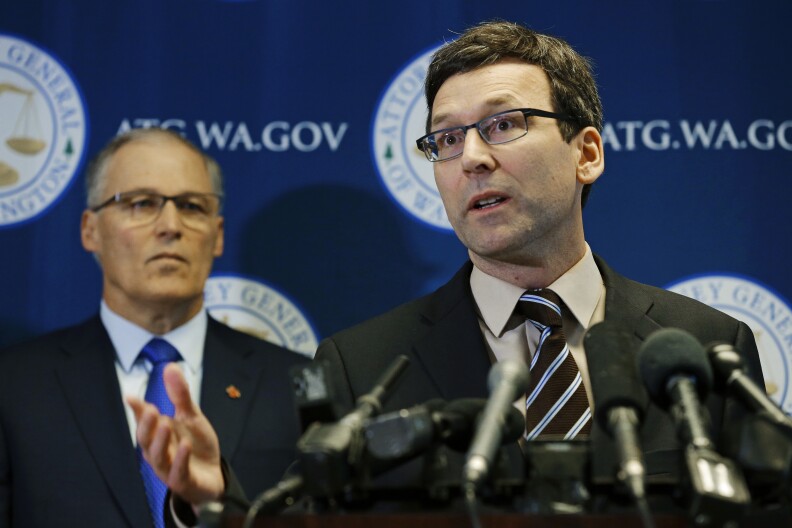Today, lawyers for the Trump Administration are presenting a brief challenging a federal judge's order that blocks its executive order affecting refugees and travel.
The president signed the plan late last month. The order temporarily bans travel from seven mostly Muslim nations and bars refugees from Syria indefinitely. As a result of the federal court's ruling, that ban has been lifted – temporarily. But the long-term picture is still not clear.
Jessica Levinson is a law professor at Loyola Law School. She highlights three key issues about the legal tussle over the ban:
What is the practical effect of this latest order from Federal District Judge James Robart of Seattle?
As long as the stay is still in place, the practical effect is that the executive order is not going to be enforced.
What are the key constitutional issues at the heart of the legal challenge?
The questions are: under the 14th Amendment, does this impermissibly treat people differently? Does it discriminate against them? And what we mean, specifically, is does this discriminate against Muslims because of the way the executive order is drafted and because of its effect? The other constitutional question has to do with the First Amendment and the "establishment" of religion.
Could this head to the Supreme Court?
This depends, but my sense is that something dealing with the power of the Executive Branch with respect to national security or this executive order specifically, may head to the Supreme Court. My guess is that the administration may try and wait to appeal to the Supreme Court until they have a full Supreme Court again, meaning until the nominee, Neil Gorsuch, is on the Supreme Court. At that point they have a court that leans conservative and I think the Trump administration would hope [it] would lean toward their perspective.
Click on the blue player button above to hear the full interview with A. Martínez and Jessica Levinson.




